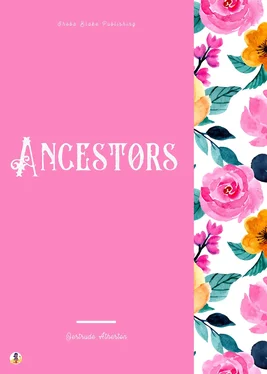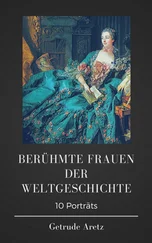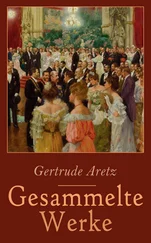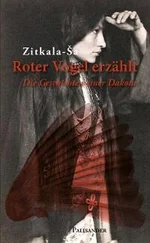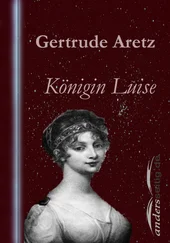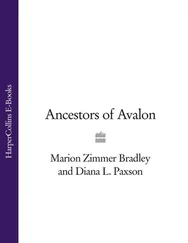Gertrude Atherton - Ancestors
Здесь есть возможность читать онлайн «Gertrude Atherton - Ancestors» — ознакомительный отрывок электронной книги совершенно бесплатно, а после прочтения отрывка купить полную версию. В некоторых случаях можно слушать аудио, скачать через торрент в формате fb2 и присутствует краткое содержание. Жанр: unrecognised, на английском языке. Описание произведения, (предисловие) а так же отзывы посетителей доступны на портале библиотеки ЛибКат.
- Название:Ancestors
- Автор:
- Жанр:
- Год:неизвестен
- ISBN:нет данных
- Рейтинг книги:3 / 5. Голосов: 1
-
Избранное:Добавить в избранное
- Отзывы:
-
Ваша оценка:
- 60
- 1
- 2
- 3
- 4
- 5
Ancestors: краткое содержание, описание и аннотация
Предлагаем к чтению аннотацию, описание, краткое содержание или предисловие (зависит от того, что написал сам автор книги «Ancestors»). Если вы не нашли необходимую информацию о книге — напишите в комментариях, мы постараемся отыскать её.
Ancestors — читать онлайн ознакомительный отрывок
Ниже представлен текст книги, разбитый по страницам. Система сохранения места последней прочитанной страницы, позволяет с удобством читать онлайн бесплатно книгу «Ancestors», без необходимости каждый раз заново искать на чём Вы остановились. Поставьте закладку, и сможете в любой момент перейти на страницу, на которой закончили чтение.
Интервал:
Закладка:
These friends did not prove as useful as she had hoped. At home there were her parents to terrify theirs, and although she visited at several châteaux, and more than one title was laid at her gilded feet, she made up her mind to read her name in Burke.
She took her parents for a tour round the world with a view to polishing off their lingering idiosyncrasies, and her chance came in India, where she buried them both. They succumbed to cholera, and the kindly wife of the viceroy, to whom she had had the forethought to secure a letter, sent for her to come to Simla and remain as her guest until she found courage and a chaperon for the return to England. Here she met Captain, the Honorable Augustus Kaye, heir to an ancient barony, chivalrous, impressionable, and hard-up. They were married with the blessings of old friends and new, and, to do her full justice, she made him a good wife according to her lights. She was quite insanely in love with him at first, for he looked like one of Ouida’s guardsmen, and his pedigree was so long, and so varied with romantic historic episode, that she was fully a week committing it to memory.
When he left the army and they had returned to England—via Paris—she had the wardrobe and establishment of a princess, the right to dine at the Queen’s table, and not a relative in London. She was immoderately happy, and during the five years of her wedded life she exhausted the first strength of her affections, buried her feminine caprice, and whatever of impulse youth may have clung to as its right. When Gussy Kaye died, the predominant feeling in her bosom was rage at his inconsiderateness in leaving the world before his father, and nothing behind him but a courtesy prefix which she could not even use on her cards.
She opened her soul to searching, and decided that five years of love were quite enough for any woman, and that her attentions hereafter should be directed towards the highest worldly success obtainable with brains, talents, and wealth. To be merely a rich woman in the right set did not come within measurable distance of her ambition’s apex, and she determined to gratify her passionate self-love by becoming a personality.
She had long since simulated the repose of the high-born Englishwoman, until, like all imitators, she far surpassed her models, and her manners were marked not so much by the caste of Vere de Vere as by an almost negative stolidity. This at least provided her with an unruffled front for trying occasions—others besides the Arcots were insensible of her offerings—which in the United States of America would have been admiringly characterized as “nerve.” This manner became solidified after her popular husband’s death, and if it was generally referred to as “aplomb” or “poise,” allowances must be made for the poverty of the average vocabulary.
It is not difficult for a clever, handsome, correct, and wealthy woman to reach and hold a distinctive position even in London, that world’s headquarters of individualities. In addition to a judiciously lavish hospitality, it is only necessary to personalize intelligently, and this Mrs. Kaye did with an industry that would have carried her to greatness had she been granted a spark of the divine fire. She cultivated the great and the fashionable in art, letters, and the drama, mixed them tactfully with her titles, attended the banquets of the ruling class in Bohemia attired flatteringly in her best, and founded a society for the study of Leonardo da Vinci. She became intimate with several royal ladies, who were charmed with her endless power to amuse them and her magnificent patronage of their charities; and she formed close relations with other dames but a degree less exalted, and generally more discriminating. She cultivated a witty habit of speech, the society of cabinet ministers, and her chef was a celebrity. Her gowns would have been notable in New York, and she was wise enough to avoid eccentricity and openly to regard all forms of sensationalism with a haughty disdain.
Her attitude to men was equally well-advised. Detrimentals and ineligibles never so much as came up for inspection; she had a far-reaching sense of selection and a proper notion of the value of time. Therefore, the many that had the run of her luxurious mansion contributed personally to her prestige, and she flattered herself that her particular band was little less distinguished than the Royal Household. And they invariably found her witty, entertaining, or, like Madame Récamier, ready to listen “avec seduction.” Her knowledge of politics was practically unbounded.
In such moments as she happened to be alone with any of her swains, she became distractingly personal, inviting, gently repelling, afforded dazzling glimpses of possibilities awaiting time and the man: so accomplishing the double purpose of agreeably titillating her own depths and wearing the halo of a well-behaved Circe. Altogether her success was what it always must be when brains and ambition, money and a cold heart are allied; but it was small wonder if the head of the daughter of the House of Tippett was a trifle turned and certain of her perceptions were blunted.
Although ofttimes large with complacency, she by no means lost sight of her original purpose to wed a coronet, and if she endured four years of widowhood it was merely because she knew that she could afford to wait for transcendence. This she had finally run to earth in Lord Brathland, imminent heir to a dukedom, and personally more agreeable to her than any man in London. That he was notoriously inconstant but added zest to the chase, and it was, perhaps, the illusion she at times achieved of a certain resemblance to the ladies of his preference that finally overcame his intense aversion from respectability. He had offered himself to her on the day of his undoing.
This was the woman with whom Elton Gwynne was infatuated at the most critical moment of his career. Of her profound aybsses he suspected nothing. She reigned in his imagination as the unique woman in whom intellect and passion, tenderness and all the social graces united in an exquisite harmony. There had been a time when, dazzled by the brilliancy of his ascending star, and Brathland being but a name to her, she had considered marriage with a man who assuredly would be the next leader of a Liberal House, and was no less certain of being prime-minister. She was under no delusion that she could one day induce him to accept a peerage, but she was reasonably sure that Zeal would not marry again, and there were times when the heir looked so ill that she tightened her bonds about the heir-presumptive, while assuring him that she was too much in love with liberty to think of marriage. Even when Zeal came back from Norway or Sorrento looking almost well, she never permitted Gwynne to escape, to see so much as a corner of her ego that might disturb the image of herself she had created in his mind; and when she met Brathland and her senses swam with the subtle scent of strawberry leaves, she saw no reason for losing the stimulating society and flattering attentions of the brightest star in the political firmament. Therefore, when he was ready to hand, in the crushing hour of her riven ambitions, and his own of serenest effulgence, she promptly reflected that the distance between a marquisate and a dukedom was quickly traversed by a powerful statesman. Meanwhile, although Elton Gwynne would no doubt be a hideous trial as a husband, his wife’s position, supported by a million in the funds and another in Chicago, would be one of the most brilliant in England. And she too had seen Lord Zeal in Piccadilly on Saturday.
XIX

The sudden elevation of her Jack to a marquisate, beside whose roots, gripping the foundations of Britain’s aristocracy, and ramifying the length and breadth of its society, the lost dukedom was a mere mushroom, created for a favorite of the last George, and notorious for its mésalliances , did not cost Mrs. Kaye a moment’s loss of poise. She merely wondered that she had ever questioned her star. People that disliked her found a subtle suggestion of arrogance in her manner, and the slight significant smile on her large firm lips was a trifle more stereotyped. Those that she favored with the abundance of her offerings remembered afterwards that she had never been so brilliant as during the month that followed the announcement of her bethrothal, and attributed the fact to the electrified springs of affection.
Читать дальшеИнтервал:
Закладка:
Похожие книги на «Ancestors»
Представляем Вашему вниманию похожие книги на «Ancestors» списком для выбора. Мы отобрали схожую по названию и смыслу литературу в надежде предоставить читателям больше вариантов отыскать новые, интересные, ещё непрочитанные произведения.
Обсуждение, отзывы о книге «Ancestors» и просто собственные мнения читателей. Оставьте ваши комментарии, напишите, что Вы думаете о произведении, его смысле или главных героях. Укажите что конкретно понравилось, а что нет, и почему Вы так считаете.
